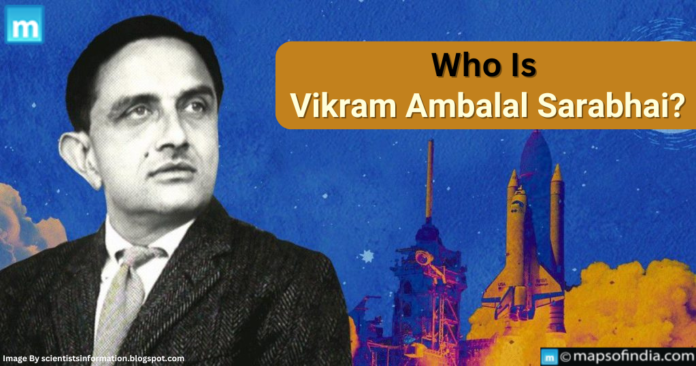Vikram Ambalal Sarabhai, whose name is associated with the commencement of India’s space program, was more than a scientist; he was a visionary whose achievements transformed the nation’s technological environment. Sarabhai was born on August 12, 1919, in Ahmedabad, Gujarat, and his path from childhood to becoming the father of India’s space program was pivotal for laying the foundation for India’s emergence as a spacefaring nation.
Early Life and Education
Sarabhai came from a prominent family of industrialists and academics. His father, Ambalal Sarabhai, was a wealthy textile merchant, while his mother, Sarla Devi, was a progressive woman who helped shape his worldview. Sarabhai had a strong interest in science and exploration since a young age, and he would frequently spend hours observing the night sky through his telescope. Sarabhai completed his primary schooling in Gujarat before continuing his study abroad. He received a Tripos in Natural Sciences from St. John’s College, Cambridge, and a Ph.D. in Cosmic Ray Physics from the University of Cambridge in 1947. His PhD thesis on ‘Cosmic Ray Investigations in Tropical Latitudes’ started his illustrious scientific career.
Contributions and Achievements
Sarabhai returned to India and dedicated himself to scientific research and education. He established the Physical Research Laboratory (PRL) in Ahmedabad in 1947, establishing the groundwork for space research in the country. Under his leadership, PRL became prominent in space sciences and related fields, cultivating an innovative and curious culture. Sarabhai’s worldview stretched beyond traditional academics. He saw space technology’s potential to alleviate societal concerns and drive national growth. 1962 he founded the Indian National Committee for Space Research (INCOSPAR), eventually becoming the Indian Space Research Organisation (ISRO). His efforts resulted in the launch of India’s first satellite, Aryabhata, in 1975, ushering the country into the space age. Aside from his contributions to space exploration, Sarabhai was crucial in promoting science education and instilling a scientific mindset in the youth. He founded various institutes, like the Community Science Centre in Ahmedabad, to popularize science among the general public. His emphasis on scientific literacy and education paved the way for India’s prominence as a global technology and innovation centre.
Legacy and Impact
Vikram Sarabhai’s legacy goes well beyond his scientific achievements. He was a strong supporter of peaceful space applications and worldwide scientific collaboration. His goal of employing space technology to promote societal development, particularly in telecommunications, weather forecasting, and agriculture, continues to influence India’s space program. Sarabhai’s influence extended beyond national limits, winning international acclaim and accolades. He presided over the United Nations Conference on the Exploration and Peaceful Uses of Outer Space in 1968, emphasizing the role of space technology in enhancing global welfare.
Even decades after his passing in 1971, Sarabhai inspires budding scientists and dreamers. His life and achievements demonstrate the potential of ingenuity, tenacity, and insight to propel development and reshape nations. As India advances in space exploration and technology, Vikram Sarabhai’s everlasting stamp is a guiding beacon, motivating future generations to strive for the stars.





